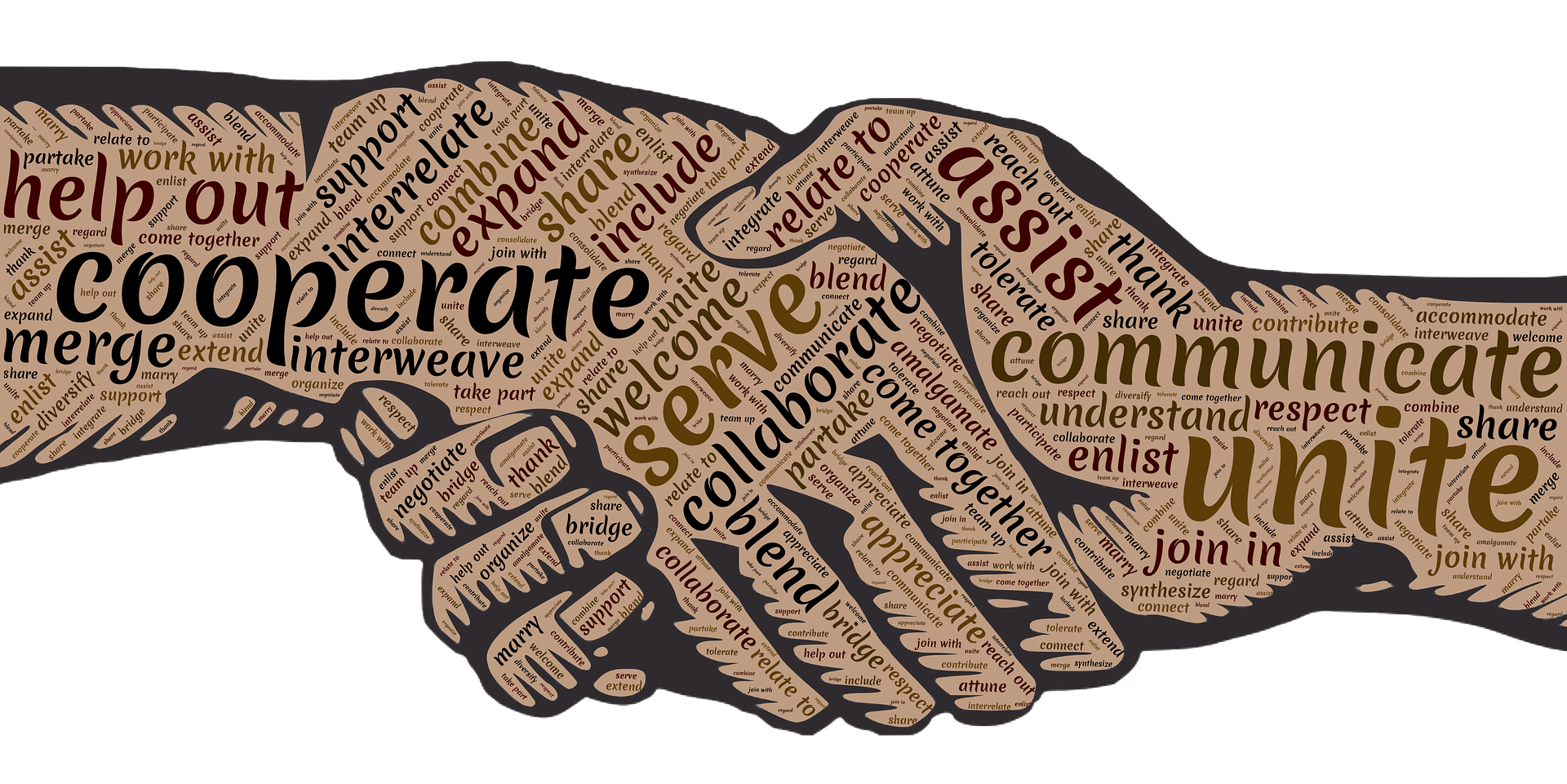The pandemic crisis has highlighted the importance of cooperation in our society. We observed many solidarity initiatives supported by citizens: breaking the isolation of the elderly, looking after the children of caregivers, or distributing foods to the most vulnerable. So many examples that illustrate the need to cooperate and to learn to cooperate.
Etymologically, “to cooperate” means “to make work”[1], in this sense the Manual of Cooperation explains that acting could be considered as working together. Common action could be understood as a collective work; cooperation could therefore be understood as a creative process. Cooperation is above all a desire to think, learn and do with others. A question arises almost naturally: how cooperate when we live in a society based on competition? Competition has been put at the heart of our functioning and learning, since our childhood.
For most of us, cooperation is difficult, it requires trusting ourselves and the other. However, when times become difficult, (health crisis, economic crisis, social crisis etc.), cooperating becomes almost obvious when we lack resources. The sector of cultural and creative industries illustrates our point well, many cooperations between CCI actors have been implemented. In addition, the European Union is trying to stimulate cooperation dynamics by offering many tools to CCI actors, such as the Creative Europe Program, which aims to promote cultural diversity and the competitiveness of the CCI sector. The program aims to support annual or multi-annual cooperation projects between European actors or the structuring of European sectoral or cross-sectoral network
We can cite Reset!, as an example of Creative Europe project. This project is a new European network that brings together independent cultural and media actors. Reset! aims to highlight the fragile situation and specific needs of these independent actors, who are neither under the control of any public authorities nor affiliated with large private groups. The purpose of the network is to work together to redesign (reset) the cultural and media landscape in Europe around the shared values of pluralism, diversity, equality and sustainability, in an inclusive and circular economy.
Reset! federates these actors of diversity and pluralism in Europe, while amplifying their visibility and networking through a series of actions online and offline. Fragmented and isolated, the sector needs to be identified, supported, and gathered together to reach a critical mass and access recognition and transnational visibility.
Reset! is fully committed to create a new model, based upon resilience and recovery of the cultural and creative sector who is and has been particularly impacted by the latest crisis. The feedback of information, data and needs of these independent actors will be tackled through surveys, journalistic features, the intervention of researchers and authors, as well as decentralized workshops in 16 countries which will allow us to propose adapted support programs to strengthen the capacity for survival, action and cooperation.
[1] L’office, Un manuel de coopération http://loffice.coop/accueil/faire-oeuvre-ou-comment-donner-forme-a-la-cooperation/

 Polski
Polski Română
Română Italiano
Italiano Ελληνικά
Ελληνικά Français
Français